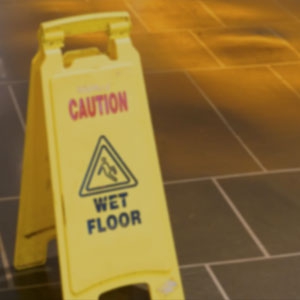 Personal Injury
Personal Injury
Our experienced personal injury attorney helps victims who have been injured in all types of accidents, from motor vehicle crashes, dog bite incidents, slip and fall accidents, negligent security incidents, and police brutality, to injuries caused by a dangerous drug or medical device. When you have been seriously injured—or lost a loved one—due to the negligence of someone else, the future may seem both uncertain and overwhelming. An experienced personal injury lawyer is here to help you protect your recovery, and will be with you every step of the way.
Our personal injury law firm goes above and beyond the call of duty for every client. From your first call until you receive your recovery, we will provide you with the best possible representation. Over the years, we have represented more than 70,000 injured clients in Wisconsin, Illinois, and Iowa, and we have recovered more than $2 Billion on their behalf.
We would be pleased to provide you with a free, no-obligation consultation. Please call or fill out our online contact form at any time—24/7/365.
 Car Accidents
Car Accidents
The days, weeks, and months following a car accident can be physically painful, emotionally challenging, and simply overwhelming. As you heal from your physical injuries, you need to take action to protect your legal rights and your future recovery.
If you have been hurt in a Wisconsin, Illinois, or Iowa car crash, then the experienced car accident lawyers of Hupy and Abraham may be able to help you during this difficult time. We will go above and beyond the call of duty to make sure that you are treated fairly, provide you with the personal attention that you deserve, and use our experience of helping more than 70,000 injured people make successful recoveries when we represent you in insurance negotiations or court.
 Motorcycle Accidents
Motorcycle Accidents
If you’ve been injured in a motorcycle crash, then you need an experienced lawyer who is also a rider. Hupy and Abraham is recognized as one of the top motorcycle accident litigation firms in the country, and our attorneys have secured tens of millions of dollars for the more than 4,000 injured riders whom we have represented.
Insurance companies know you mean business when you hire Hupy and Abraham to represent you. We provide tough, aggressive, and compassionate representation to each client, and we offer each client a win or it is free guarantee.
 Truck Accidents
Truck Accidents
A truck crash can result in a catastrophic injury. If you’ve been hurt then you need a skilled truck accident lawyer to help you get the financial recovery that you deserve.
For the past half century, the experienced lawyers of Hupy and Abraham have been helping accident victims in Wisconsin, Iowa, and Illinois get fair damages for their truck crash injuries. We provide each client with personal attention from the first time they call us until their case has settled. Contact us anytime to get personalized, accurate, and important information about your own truck accident claim.
 Slip and Fall Accidents
Slip and Fall Accidents
After you’ve been hurt in a slip and fall accident, you need to take action right away to protect your rights. Our experienced injury lawyers have more than 200 years of combined experience and have helped more than 70,000 injured people. We can use that experience to help you by thoroughly evaluating your claim, advising you of your rights, negotiating with the right insurance companies, and, if necessary, representing you in court.
Throughout your case, we will make sure that you are treated fairly and kept fully informed about what is going on. We will fight tirelessly to obtain the financial recovery you deserve. You can hire us with confidence—we offer our WIN or it’s FREE guarantee to every accident client.
 Negligent Security
Negligent Security
The property owner did not physically attack you, but if the property owner failed to have reasonable and adequate security measures in place when someone else attacked you, then the property owner may be legally responsible for your injuries. This is known as negligent security, and our experienced negligent security lawyers are here to help you if you’ve been injured.
If you’ve been hurt in Wisconsin, Iowa, or Illinois, then we encourage you to contact our negligent security attorneys for a free and confidential case evaluation. If you decide to hire us, then we commit to providing you with the best possible representation from the beginning of your case through to its conclusion. At each step of the way, we will provide you with personal attention, and we will go above and beyond the call of duty to obtain a fair recovery for you.
 Dog Bites
Dog Bites
A dog bite injury can cause a great deal of physical pain, emotional trauma, and financial hardship. If you or your child have been hurt by a dog, there are steps that you can take to protect your rights.
Since 1969, the lawyers of Hupy and Abraham, S.C. have been helping injured people make fair legal recoveries. So far, we have secured more than $2 Billion on behalf of our clients. For our dog bite injury clients, a financial recovery may mean compensation for past and future medical bills, lost income, out-of-pocket costs, physical pain, emotional suffering, and other damages. Our experienced lawyers provide each and every client with personal attention from the first time they call us until their case has been resolved. Contact us today for a free, no-obligation consultation and to learn how we can help you.
 Pharmaceutical Class Actions
Pharmaceutical Class Actions
The failure to design a safe product, the failure to manufacture a safe product, or the failure to warn people of known dangers can be evidence of negligence. When pharmaceutical companies or other companies are negligent in one of these ways, catastrophic injuries can occur.
If you’ve been hurt by a defective drug, a defective medical device, or another product, you may be able to recover damages for your past and future medical expenses, lost income, out-of-pocket costs, pain, suffering, and other losses. However, the negligent company is going to fight hard to keep you from getting the settlement you deserve.
Our experienced pharmaceutical class action law firm will go above and beyond the call of duty to make sure that you are treated fairly. Tell the pharmaceutical company that you mean business by contacting us as soon as possible. We offer a win or it’s free guarantee, so you have nothing to lose.
 Wrongful Death
Wrongful Death
If you have lost a loved one in a tragic accident, your life changed in the blink of an eye. As you look toward the future, it is important to understand whether you are eligible to file a wrongful death lawsuit, if you have a case, the damages you might recover, and how a wrongful death attorney can help you through the process.
The experienced wrongful death lawyers of Hupy and Abraham will provide you with the personal attention you deserve and the tough and compassionate representation you need. Our attorneys have more than 200 years of combined experience and 11 offices throughout Wisconsin, Iowa, and Illinois. We are here for you when you need us. Call us or contact us via this website at any time to learn more.
 Police Brutality
Police Brutality
The police are supposed to protect you, and while most police officers do their jobs honorably, some officers use excessive and unnecessary force—and cause serious injuries as a result. These cops must be held accountable.
Our experienced police brutality lawyers secured the largest police brutality settlement in Wisconsin history, and we are committed to helping victims throughout Wisconsin, Illinois, and Iowa obtain the compensation they deserve when they have been injured by the police. Tell the police you mean business and protect your rights by contacting our law firm today for a free, no-obligation consultation.
 Iowa Workers Compensation
Iowa Workers Compensation
It can be difficult to apply all of this information to the facts of your case without the help of an experienced attorney. Our Iowa workers’ compensation lawyers have extensive experience in settlement negotiations and at trial, and we have a successful track record. If you would like to schedule a free consultation at one of our conveniently located Iowa offices in Cedar Rapids, Des Moines, or Davenport, then please call us today at 1-800-800-5678 or start a live chat with us now.




